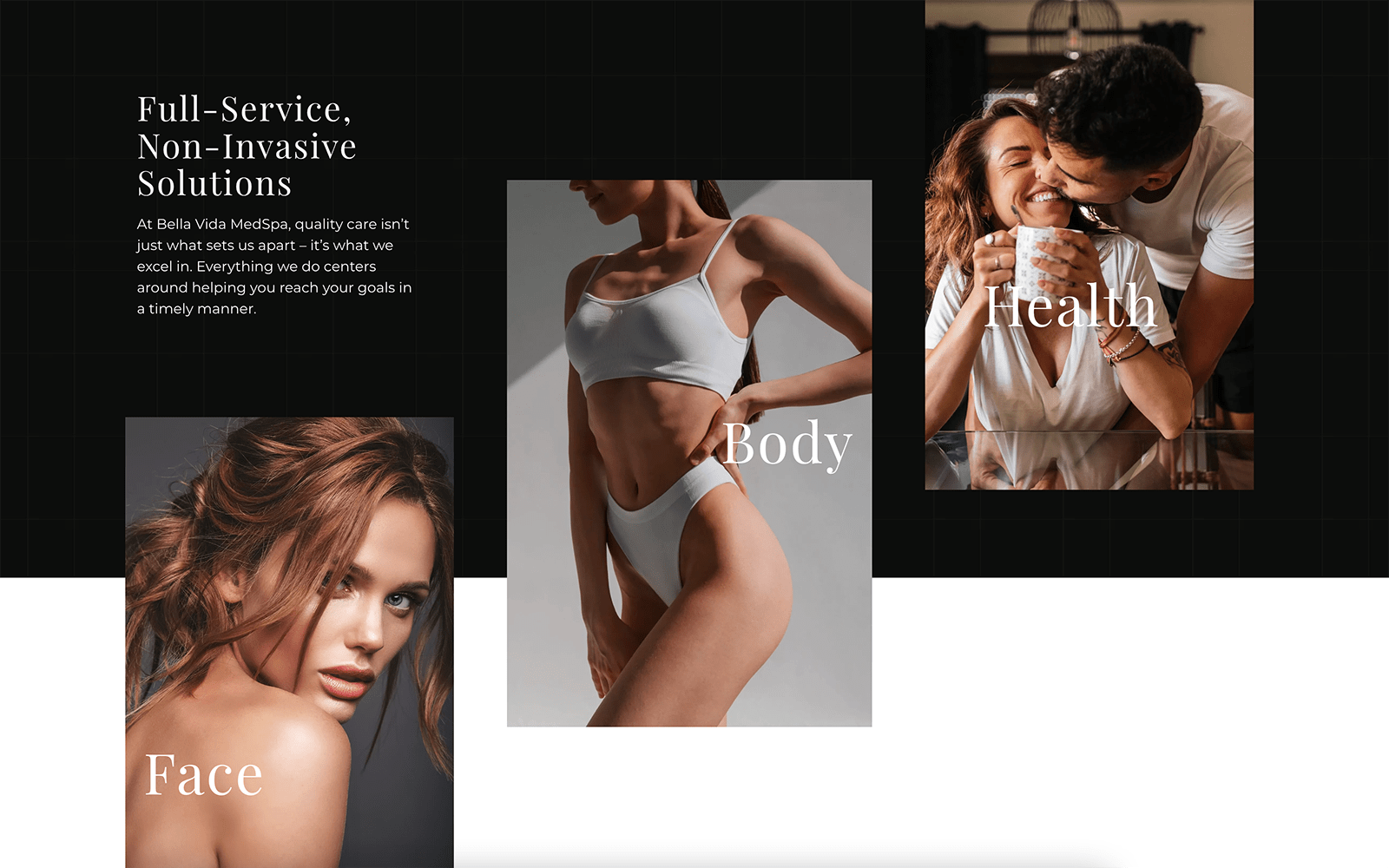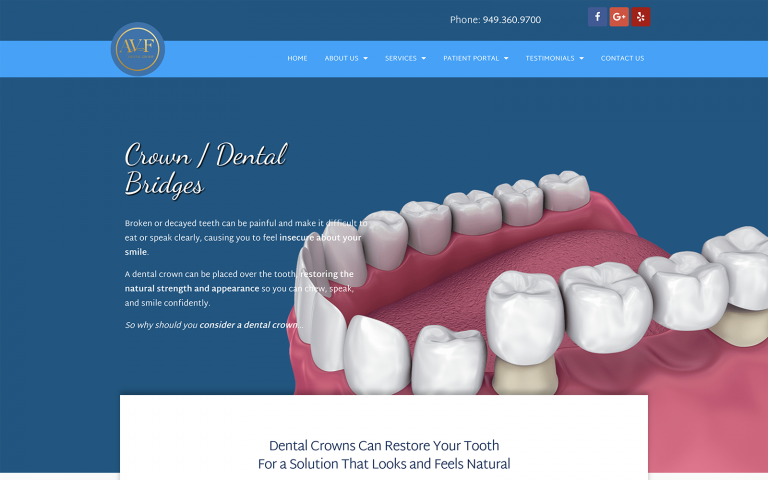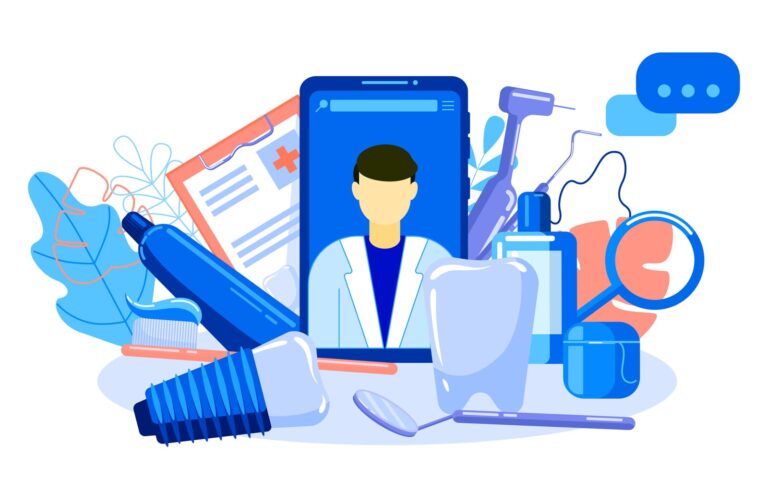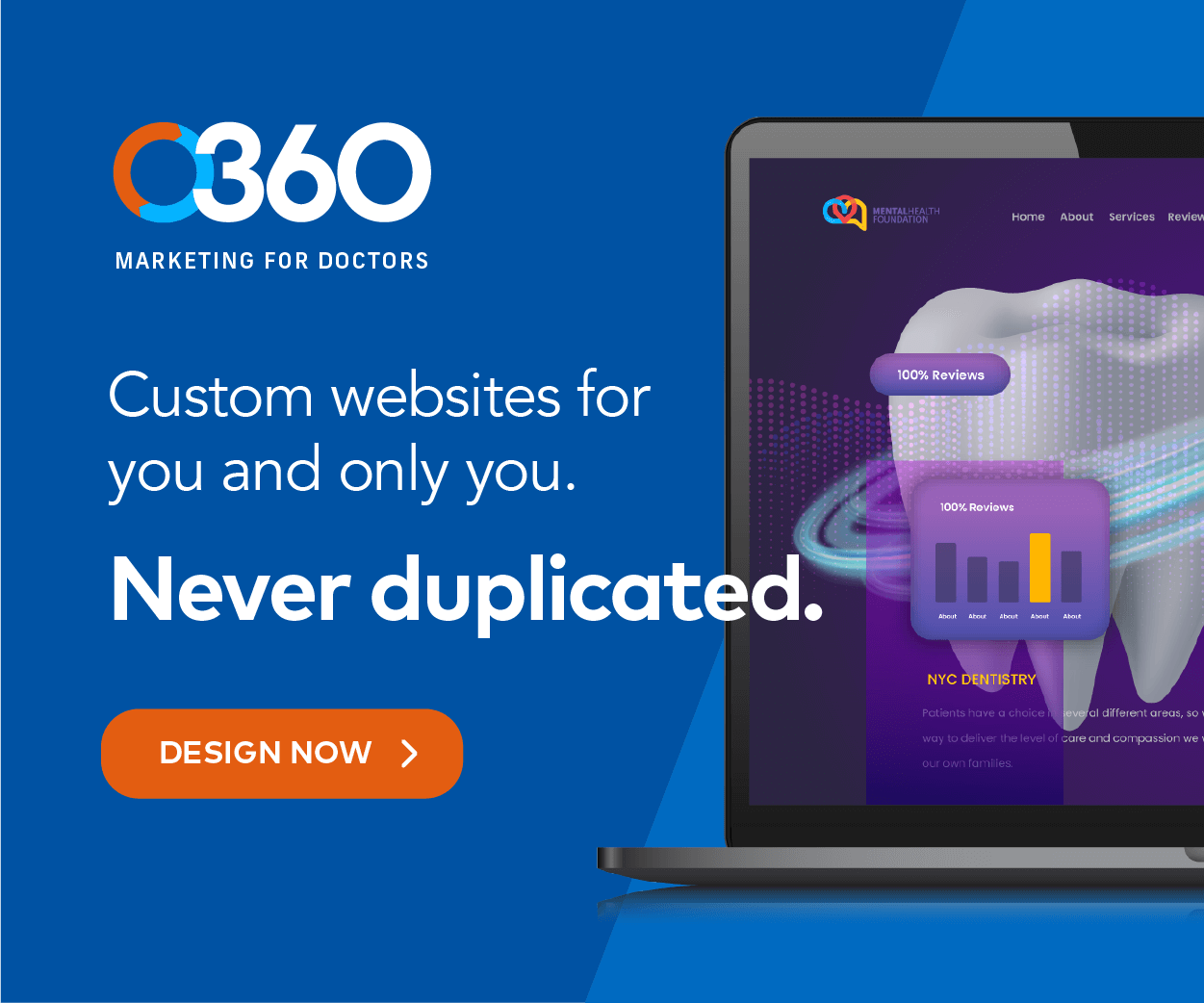A picture is worth a thousand words, and in the world of medical and dental websites, high-quality images can play a critical role in patient attraction and engagement. But what constitutes a high-quality image? Where can you source them, and what should the images depict? Let’s unravel these aspects one at a time.
Why image quality is important?

High-quality images play a vital role in creating an effective medical or dental website for several reasons:
1. Professionalism
Clear, crisp images present a professional image of your practice. They imply that you maintain high standards in all aspects of your business, from your actual medical procedures to your online presence.
2. Patient Trust
For many potential patients, your website serves as their first impression of your practice. High-quality images can enhance this impression, building trust and confidence before they enter your office.
3. Visualization
Especially in the medical and dental fields, potential patients often like to see what they’re getting into. Images of the practice, the staff, and even the equipment can help demystify the experience, making patients feel more comfortable about booking an appointment.
4. Improved User Experience
High-quality images can make your website more attractive and engaging, improving user experience and potentially leading to higher conversion rates.
5. SEO Benefits
Good quality images can help your website’s SEO. If they’re optimized properly (with relevant file names and alt text), they can improve your site’s visibility on image-based searches.
6. Website Performance
Remember, while using high-quality images, ensure they are optimized for web use. Unoptimized high-resolution images can slow down your website loading speed, negatively impacting the user experience and SEO.
See examples of great medical websites with high-quality images.
Also check the importance of videos in web design.
What is a High-Quality Image?

Several elements characterize a ‘high-quality’ image:
1. Resolution
High-quality images are high resolution, meaning they have a high pixel count. This allows them to display in sharp detail without becoming pixelated or blurry when viewed on larger screens or zoomed in. In digital terms, an image with a resolution of 1920×1080 pixels or higher can generally be considered high resolution.
2. Clarity
The image should be in focus, with the essential elements of the image sharp and clear. This is especially vital for medical or dental photos, where clarity can enhance trust and professionalism.
3. Lighting
Good lighting is key to a high-quality image. The image should be well-lit, ensuring all relevant details are visible and no unnecessary shadows or highlights obscure details.
4. Composition
The subject matter should be well-composed within the frame, following the basic rules of photography, like the rule of thirds, leading lines, and framing.
5. Relevance
Regardless of the technical quality, the image must also be high quality regarding its relevance to the content. For example, on a dental website, images should be related to dentistry, your specific services, or your team and office.
6. File Format
High-quality images are usually saved in a lossless format like PNG or high-quality JPEG. These formats ensure the details aren’t lost during the compression process.
7. Size
The image file size should be optimized for the web – small enough to load quickly on your website but not so small that quality is compromised.
The best sources for dental and medical images

High-quality images are critical for enhancing the professional appeal of your dental or medical website. Here are some sources to procure these images:
1. Professional Photoshoots
Hiring a professional photographer to capture high-quality, personalized images of your practice, team, and your services is a great option. This ensures that the images are not only high-quality but also authentic and exclusive to your practice.
2. Stock Photo Websites
Many online platforms provide high-quality stock photos. Some of the paid options include Shutterstock, Getty Images, and Adobe Stock. There are also free stock photo websites like Unsplash, Pixabay, and Pexels. Be sure to look for images that fall under the Creative Commons license or are royalty-free to avoid any copyright issues. Please note that while they offer high-quality images, these may lack the personal touch and uniqueness that come with photos of your actual practice and staff.
3. Medical and Dental Specific Stock Images
There are also stock image websites that specialize in healthcare-related images. Websites like MedicalStockImages.net and Dental Stock Photos offer a range of high-quality images that are specific to the medical and dental industries.
4. Patient Photos (With Consent)
Before and after photos can be very powerful on a medical or dental website, showcasing the results you can provide. Always ensure you have written consent from the patients to use their photos.
5. 3D Renderings and Illustrations
For more complex procedures, 3D renderings and illustrations can effectively explain things to your website visitors. These can be sourced from specialized healthcare design agencies or platforms.
Remember, while sourcing images, it’s critical to respect copyright laws and only use images you have permission to use. Always provide appropriate credits when required.
The Content of the Images

The content of the images on your dental or medical website should align with the services you offer and effectively communicate your practice’s mission and values. Here are some suggestions:
1. Your Team
Photographs of your team can make your practice more personal and approachable. Images of staff members interacting with patients can be particularly effective.
2. Your Office
Images of your waiting area, treatment rooms, and office exterior can help patients visualize what to expect and enhance their comfort level before arriving.
3. Before and After Photos
These can showcase the results of your work. Be sure to obtain explicit consent from patients before using their images.
4. Equipment and Technology
Showcasing the technology and equipment you use can demonstrate your commitment to using the latest techniques and tools in your practice.
5. Procedures
Images related to the services you offer can be useful. For dental websites, this could include images related to general dentistry, orthodontics, oral surgery, cosmetic dentistry, and more.
6. Educational Images
Diagrams, infographics, or illustrations that help explain complex medical or dental procedures can be beneficial. They can make the information more digestible and engaging for your patients.
7. Patient Lifestyle Images
Images showing patients leading a healthy lifestyle post-treatment can be very inspiring and motivating.
Remember, the goal is to create a visually appealing, informative website that accurately represents your practice, your team, and the level of care patients can expect when they choose your services.
See examples of dental websites with high-quality images
Legal Considerations for Image Usage

Legal considerations when using images on your website include:
1. Copyright Laws
Always ensure you have the right to use the image. Unauthorized use can lead to copyright infringement.
2. Licensing
Understand the terms of the license under which you’re using the image. Some licenses may restrict commercial use, modifications or require attribution.
3. Model Release Forms
If the image includes recognizable individuals, a model release form might be necessary to use the image legally.
4. Privacy Laws
Patient photos should only be used with explicit, written consent from the patients themselves, respecting privacy and confidentiality rules. See O360’s HIPAA services.
5. Trademark Laws
Be cautious of images that feature logos, branded products, or other trademarked items.
6. Sensitive Content
Images depicting medical procedures or conditions may be subject to specific regulations or standards. Always use discretion and consider the potential impact on your audience.
7. False Advertising
Ensure that images are not misleading or misrepresenting your services or results, which could potentially lead to false advertising claims.
Legal considerations can vary by jurisdiction, so it’s always advisable to consult with a legal professional if you have any concerns or uncertainties.
Conclusion
Images play an integral role in crafting an effective online presence for your medical or dental practice. By understanding what constitutes a high-quality image, where to source them from, the legal considerations in their use, and the right content to display, you can enhance your website’s visual appeal and its ability to engage and attract patients.














